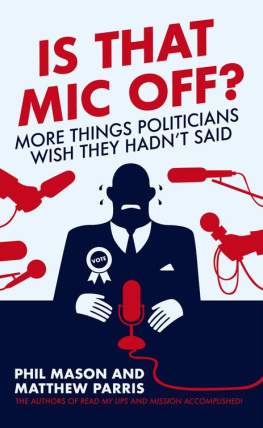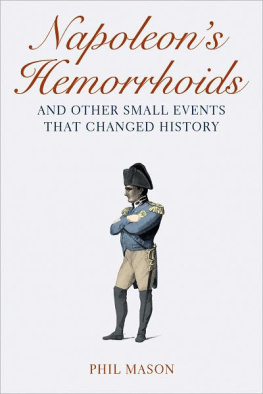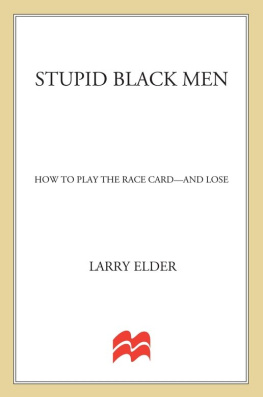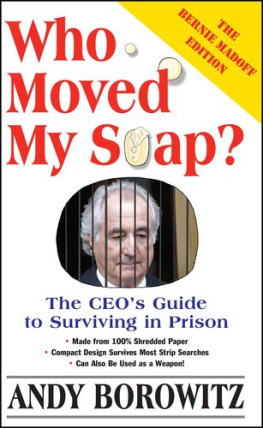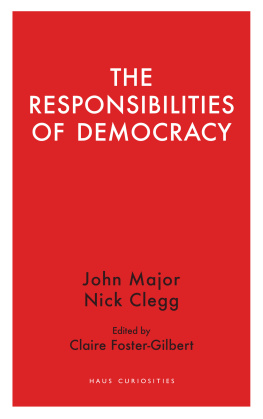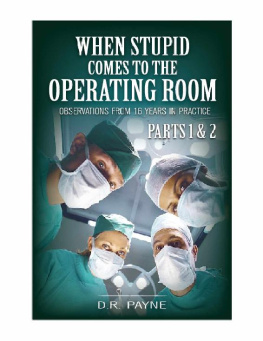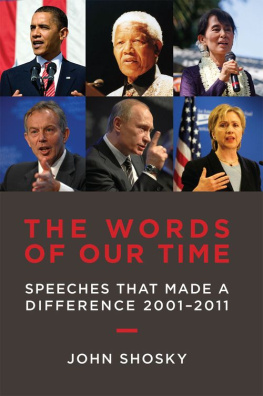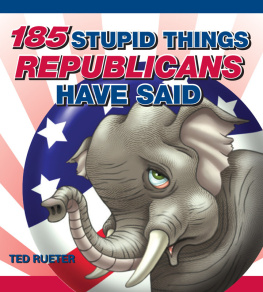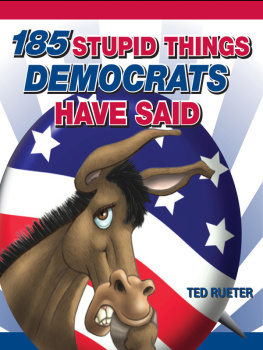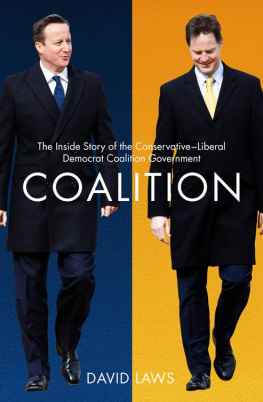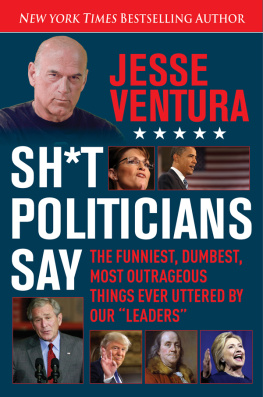CONTENTS
1. I wish Id kept my mouth shut
Simple blunders
2. Now, why dont we
Mad ideas
3. Could I have your attention
Public announcements
4. Let me be perfectly clear
Slippery words
5. Ooops!
Off message
6. Now, when I said
Second thoughts
7. Calm down, dear
Sheer bloody nerve
8. I hate to say so, but
The sharp riposte
9. A sort of bigoted woman
Election and coalition special
10. My fellow Americans
American election special
11. Now, dont tell anyone, but
WikiLeaks the US cables
S o here we are yet again. It will come as no surprise to those avid collectors who already have our earlier offerings, Read My Lips and Mission Accomplished!, that despite (or perhaps because of) the requirements of modern 24-hour news and social media, there still remain many, many politicians who discover themselves to be ill at ease with what ought to be their most honed and perfected asset the mouth.
Is That Mic Off? is a further collection of magnificent gaffes, faux pas and idiotic utterings that have slipped from the lips of our elected governors (or in the case of WikiLeaks, from supposedly tight-lipped diplomats).
While the content is completely fresh, the patterns remain the same as before. We have idiotic blunders where the problem is ignorance, confusion or just plain mangling of language, and a selection of spoken catastrophes that really should have been prevented, as they were supposedly pre-scripted public pronouncements. There is, too, a surprisingly rich array of stupid ideas. If we elect our politicians because we feel they might have a better take than the rest of us mortals on how to improve the commonweal, time to think again.
We move to the more familiar and unsavoury traits of politicians the slippery words, the deceptions, the backtracking (which does not necessarily entail admitting error or a change of mind). Sometimes it is history that does the undoing a politicians convictions, strongly held at one point in time, morph quietly into something very different later on. But they rarely tell us. We have to chisel out the past for ourselves, a service Is That Mic Off? thirsts to undertake. Sometimes, it is technology that undoes a politician. Microphone gaffes are here aplenty, when the private thoughts of public figures are exposed, showing them in a different light to the persona they cultivate on the public stage.
And then there is the audacity, the effrontery, the sheer bloody nerve of some politicians. Possibly, on mature recollection (as a senior Irish politician once classically put it), a number of them regretted their words in the cooler light of day and would not be proud to have them replayed to them. Many perhaps remain immune to the shamelessness of their remarks. That is sometimes the character of the beast.
Three distinct recent historical moments form the concluding sections. The British general election of 2010, fought at the end of thirteen years of an increasingly wayward and maligned New Labour government (remember the unbounded optimism of Cool Britannia in 1997?), produced an unexpected outcome: the first formal peacetime coalition government since the 1930s and the rapid eating of many pre-campaign words, particularly by the chief beneficiary of events, Liberal Democrat leader Nick Clegg, who suffered some tortuous contortions.
The United States is, as we write, engaged in its regular four-yearly mad-fest of sound bites, debates and cross-continent campaigning. Mercifully for us, unlike their British counterparts who get the whole thing over in three weeks, Americans take nearly two years, so this investment account already shows a healthy balance, months before voting day. From supposedly the most sophisticated political system on the planet, there continue to stream extraordinary blunders , including, this time around, what one seasoned commentator called the most excruciating collapse of any politician in any debate since they began in 1960. Find it in Chapter 10.
Finally, there was WikiLeaks. To be honest, the release of a quarter of a million US diplomatic cables revealed little more than the regular traffic between embassies around the world and the home capital, full of the quotidian inanities familiar to anyone working in this arena but they were eye-opening for the general public, laying bare an astonishing new world. Among the slough, there were inevitably some sensitive nuggets which had been intended to remain strictly confidential. We have done our own draining of the bog and offer a selection of observations that were certainly never meant to be put into the public domain.
The fact that we could do so from the comfort of our office is just one illustration of how modern communications technology presents such a challenge for our slip-up stricken politicians. Less than a generation ago, such a mass release would have been inconceivable, as it would have required the capture of the physical documents; certainly, researching them would have been a highly restrictive exercise requiring tangible access. Today, anyone and everyone has access and can scrutinise the material themselves.
The evolution of the media is laying down a frighteningly wide range of traps for politicians, and they are still behind the curve in their response again, mercifully for collectors like us and you, good reader. A political strategist for the Democratic Party reflecting on this during the 2008 presidential election campaign mused on how the odds were now stacking up against politicos. In the olden days, said Jenny Backus, the problem of a candidate saying something they later regretted wasnt an issue because if you said something that could be problematic, you just denied that you said it. These days, its too easy to have cold, hard proof.
She was talking about the ever-present horde of film crews feeding the beast of the always-demanding 24-hour news channels and, an even more recent phenomenon, the amateur gotcha stalker, always hovering and armed with a camera phone, able to load an embarrassing clip onto a social media site for the worlds consumption within moments. Youve got to have a strategy to combat the YouTube video, she added. Now, one mistake can be replayed often.
Options for response, she went on, boil down to two. Politicians can choose to stand firmly behind their comments, admit no mistake and simply motor on. This stratagem is based on the belief that to confess to having messed up, to apologise or clarify, shows weakness and muddle-headedness instead of strength and confidence.
The alternative is to accept the error, repent or clarify, and try to move attention quickly somewhere else. On the positive side, it can look honest, and convey a sense of being only human rather than that worst of modern politicking, the political automaton. Too often, though, attempts to repair things leave the struggling politician looking like damaged goods; guilty of not being clear-minded; someone liable to wavering when the pressure mounts: not a good commendation for high elected office. Sometimes, too, as you will see many times in what follows, the attempt to put things right only makes things worse.
As you proceed through the collection, well leave you to judge which approach tends to come out better in the dance with the verbal devil.
This volume draws its material from the capacity of politics to throw out ever-changing challenges to those who make the decision to take on the responsibilities of public life. We regale the equally consistent inability of many of that self-selected group to rise to those challenges. The essence of the battle was perhaps never better captured than by a politician youll probably never have heard of, Liberal MP Frank Owen, who had a spectacularly short political career just two years at the height of the Depression. He magisterially summed up the vicissitudes of political life: In 1929, the wise, far-seeing electors of my native Hereford sent me to Westminster and two years later in 1931 the lousy bastards kicked me out.

